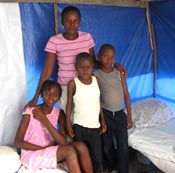
Fired for Opposing Coup, Honduran Educators Go on Hunger Strike
Source: In These Times
As thousands of marchers converged on the plaza outside the national Congress building on the anniversary of the coup in Honduras June 28, a handful of famished, exhausted but determined educators looked on from tents—on the 35th day of a hunger strike.
The educators are just one of the many faces of the Honduran resistance movement that has blossomed in the past year, uniting unionists, indigenous people, feminists, LGBT activists, campesinos and other factions who previously had little contact. (Read Jeremy Kryt’s reporting from Honduras for In These Times here.)



